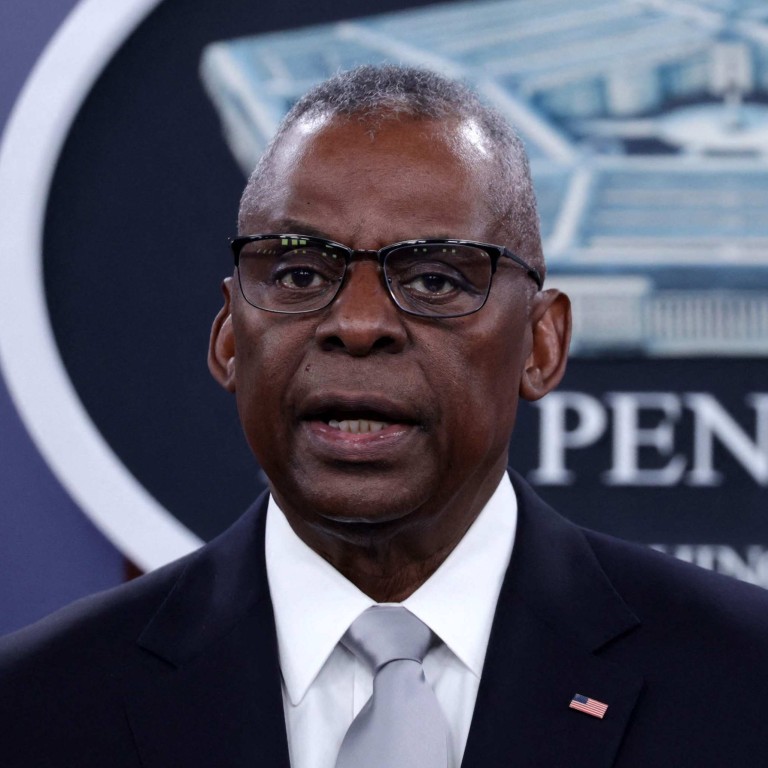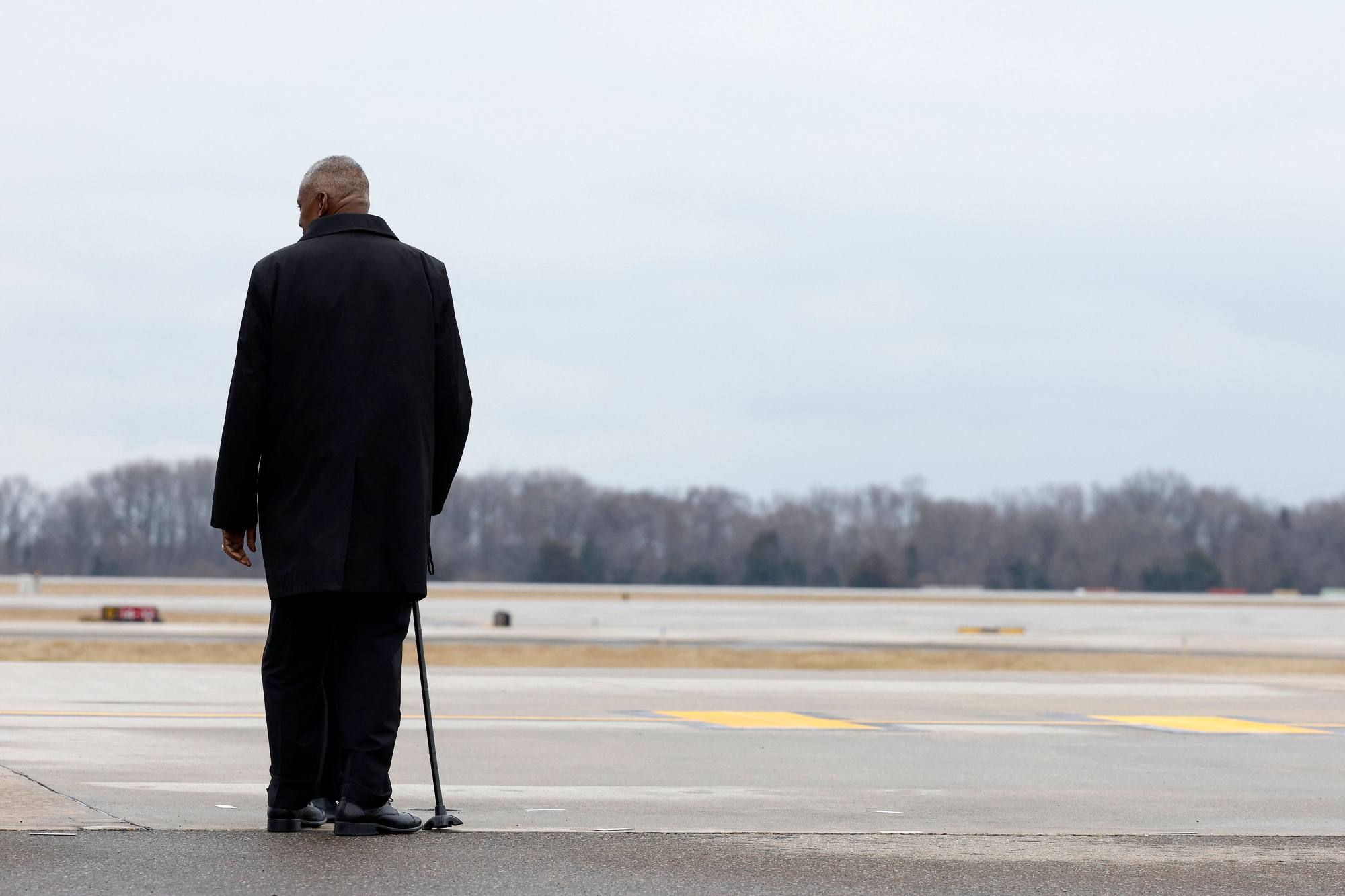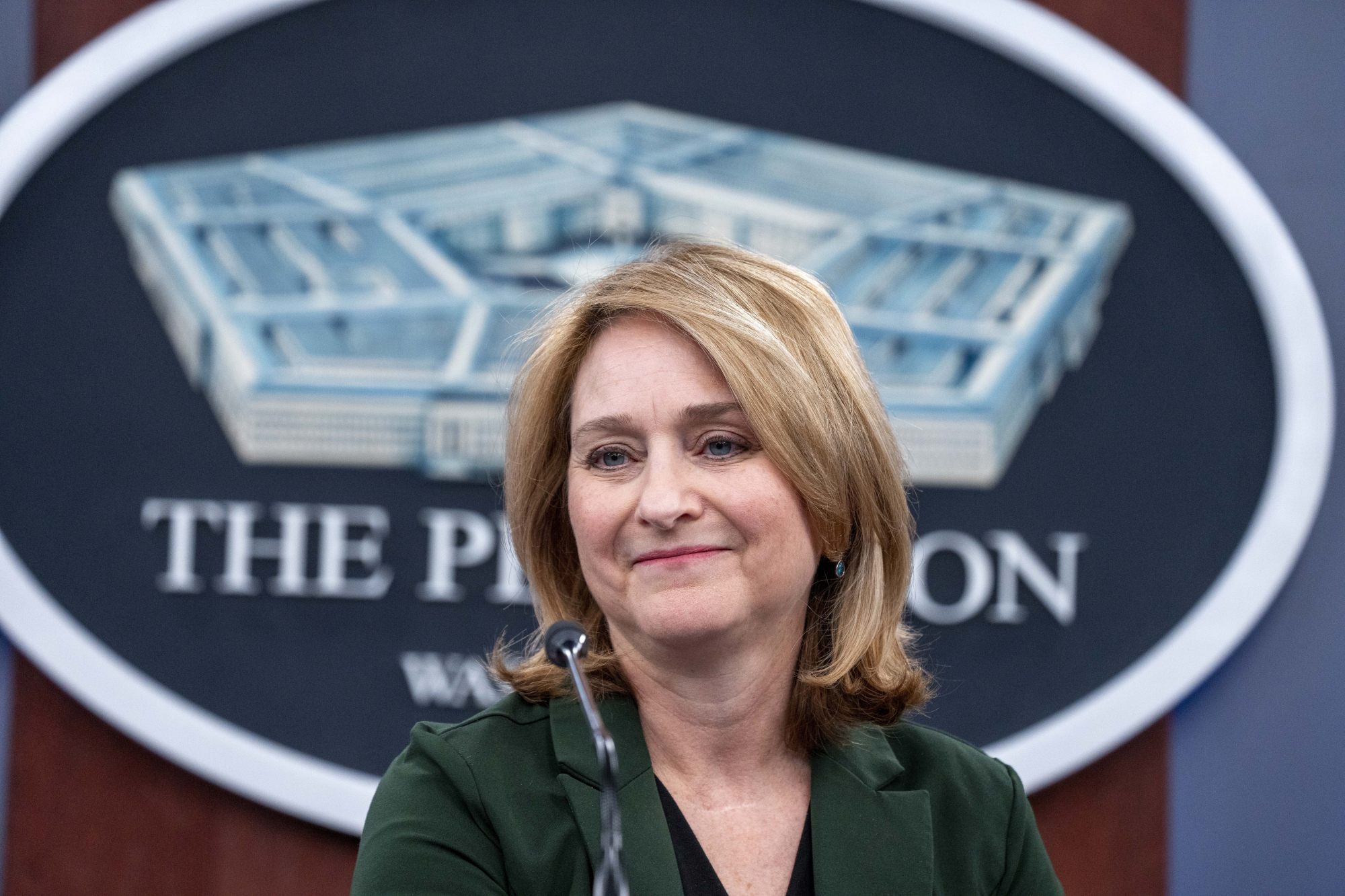
US defence chief Lloyd Austin admitted to critical care, transfers powers to his deputy
- Lloyd Austin, 70, hospitalised again following recent complications from prostate cancer
- Pentagon chief has transferred powers to Deputy Defence Secretary Kathleen Hicks
US Secretary of Defence Lloyd Austin, who is fighting prostate cancer, transferred his duties to his deputy hours after being admitted to a critical care unit in Washington for what a Pentagon spokesman called “an emergent bladder issue”.
Deputy Secretary of Defence Kathleen Hicks “assumed the functions and duties” just before 5pm, Pentagon spokesman Pat Ryder said in a statement, adding that Austin was still receiving treatment and that the White House and Congress had been informed.
The announcement came weeks after it emerged that Austin, 70, had kept previous hospital stays secret and had not immediately informed US President Joe Biden of his cancer diagnosis, sparking criticism as the United States faces crises in the Middle East and Ukraine.
Austin effectively vanished from the public eye for treatment for prostate cancer in December and again in January after suffering complications from the procedure.

This time, the public was alerted around two hours after he was sent to the hospital on Sunday afternoon.
Austin “was transported by his security detail to Walter Reed National Military Medical Centre,” Ryder said in an earlier statement.
US defence chief Lloyd Austin vows ‘all necessary actions’ after US troop deaths
“The Deputy Secretary of Defence and the Chairman of the Joint Chiefs of Staff have been notified. Additionally, White House and Congressional notifications have occurred.”
Initially Ryder noted that the defence chief brought along classified communications systems and would be retaining “the functions and duties of his office”.
The announcement that Hicks would instead be taking over came just a few hours later, however. Ryder said the Pentagon would give more updates as soon as possible.
A statement from Walter Reed medical officials late Sunday said Austin was admitted into the critical care unit.
“Tonight, after a series of tests and evaluations, the Secretary was admitted into the critical care unit at Walter Reed National Military Medical Centre for supportive care and close monitoring,” the statement read.
It was unclear how long Austin would remain hospitalised, Walter Reed officials said.
Austin’s cancer prognosis remained excellent and the bladder issue was not expected to change his anticipated full recovery, the officials added.
After coming under heavy political fire for keeping the previous hospital stays secret, Austin apologised earlier this month.

“I should have told the president about my cancer diagnosis,” he told journalists on February 1.
At the time, he said he was still in recovery, suffering from leg pain and using a golf cart for transportation inside the Pentagon.
The undisclosed absences – as well as this current hospital stay – come at a time when the United States faces a spiralling crisis in the Middle East, with American forces in Iraq and Syria facing near-daily attacks from Iran-backed militants in retaliation for Washington’s steadfast support of Israel.
The top US defence official is also a key figure in attempts by the Biden administration to maintain support for Ukraine’s fight against Russian invasion, as Republican members of Congress refuse to authorise new funding for military aid to Kyiv.
Various Republican lawmakers previously called for Austin to be sacked, but Biden, while lamenting the Pentagon chief’s lapse in judgment, has said he remains confident in his defence secretary.
Austin has gained a reputation as a largely apolitical public servant who is most comfortable with US troops.
A commanding presence at well over 1.8 metres tall, he is an intensely private person who eschews the spotlight, which he said played into his decision to keep the cancer diagnosis secret.
But he admitted that “taking this kind of job means losing some of the privacy that most of us expect. The American people have a right to know if their leaders are facing health challenges that might affect their ability to perform their duties, even temporarily”.
Additional reporting by Reuters

.png?itok=arIb17P0)